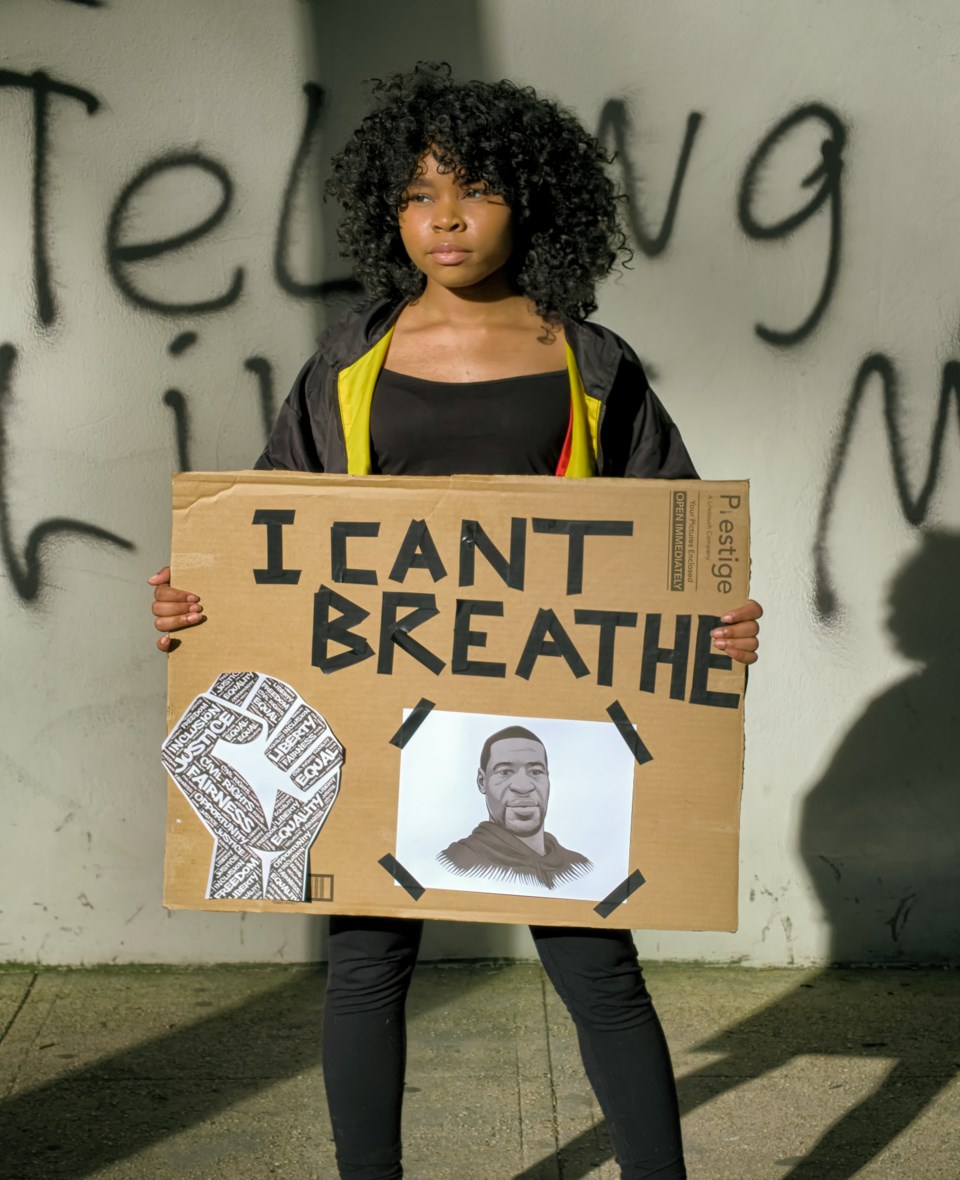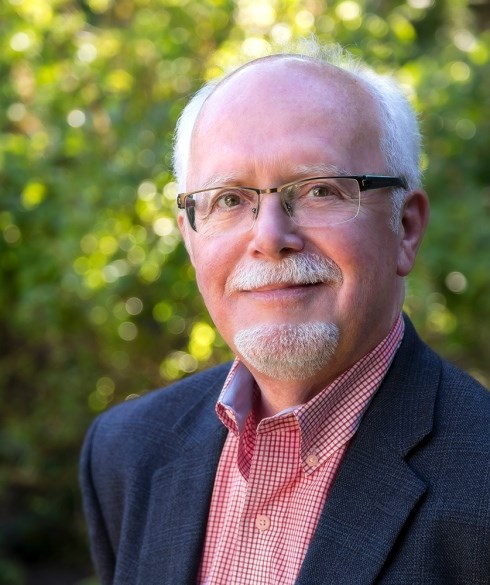 As ŌĆ£I have a dreamŌĆØ is Martin Luther KingŌĆÖs immortal phrase, so ŌĆ£I canŌĆÖt breatheŌĆØ is George FloydŌĆÖs.┬Ā┬ĀBoth are gifts to the world.┬Ā┬ĀThe first speaks to the aspiration of the human spirit, the second to its crushing.
As ŌĆ£I have a dreamŌĆØ is Martin Luther KingŌĆÖs immortal phrase, so ŌĆ£I canŌĆÖt breatheŌĆØ is George FloydŌĆÖs.┬Ā┬ĀBoth are gifts to the world.┬Ā┬ĀThe first speaks to the aspiration of the human spirit, the second to its crushing.
ŌĆ£I canŌĆÖt breatheŌĆØ has become the rallying cry against racial injustice.┬Ā┬ĀBut its relevance is wider and deeper than that.┬Ā┬ĀIt addresses the multiple sets of fundamental crossroads at which humanity has recently arrived.┬Ā┬ĀIt addresses the briar patch of predicaments that have ensnared us prior to and during 2020, this pandemic year of clearing skies and symbolically perfect vision. ┬Ā
ŌĆ£I canŌĆÖt breatheŌĆØ┬Āpertains to COVID-19.┬Ā┬ĀVentilators that give some of the infected a chance of surviving are a primary symbol of the virus.┬Ā┬ĀŌĆ£I canŌĆÖt breatheŌĆØ pertains as well to inequality.┬Ā┬ĀThe disadvantaged receive limited access to lifeŌĆÖs necessities and opportunities.┬Ā┬ĀAnd ŌĆ£I canŌĆÖt breatheŌĆØ pertains to pollution, smog, and climate change, to the chokehold we have put on the spinning, blue planet that sustains us.
Our myopia and baser instincts have imperilled us.┬Ā┬ĀThey have brought us to a standstill at some crossroads while we cautiously make our way forward at others.
Science and technology will undoubtedly have to play an important part if we are to save ourselves.┬Ā┬ĀHappily, a vaccine for COVID-19 may only be months rather than years away.
Equally encouraging is the unprecedented clarity, consensus, and political will, and the consequent steps toward racial justice, sparked by George FloydŌĆÖs very public and up-close lynching.┬Ā┬ĀBut similar movement, let alone momentum, has yet to emerge on the social inequality and climate change fronts.
While it is unnerving to remain stuck when the implications are so dire, and it is counter-intuitive to embrace contemplation in the face of urgency, that is what we are being called to do during the profound pregnant pause the pandemic has imposed upon us.┬Ā┬ĀCircumstances are inviting us to gestate, as consciously as we can, the world we want for ourselves and for future generations.
What we need even more than science and technology is a holistic and unifying vision developed through the magnification of spirit, as in humanityŌĆÖs willingness to take a knee for what is best for Mother Earth and all its inhabitants.┬Ā┬ĀWe need a rebirth of reverence.┬Ā┬ĀLife is sacred, and despite all its messy complexity, it needs to be treated as such.
We need, individually and collectivelyŌĆömeaning our institutions, and especially our governmentsŌĆöto enable emergence by fostering internal and external conversations on both our preferred future and the big issues it must encompass.
Age-old wisdom to ŌĆ£sleep on itŌĆØŌĆöto go withinŌĆöto see what inspiration might arise during the metaphoric night is, paradoxically, calling us to action.┬Ā┬ĀWe are challenged to ŌĆ£dream bigŌĆØ and to follow-through with discernment and all due deliberation lest we find ourselves facing increasingly nightmarish scenarios.
Put another way, we need to tap into our creative inner selves, to make the inner journey of heart and soul, and to transmute what we find into a decidedly better world.┬Ā┬ĀIn his 1978 bestseller,┬ĀThe Road Less Traveled, psychiatrist M. Scott Peck wrote that ŌĆ£the unconscious manifests itself and speaks to usŌĆØ in a variety of ways.┬Ā┬ĀHe maintained ŌĆ£our unconscious is wiser than we are about everything.ŌĆØ[1]
Leonard Cohen understood this.┬Ā┬ĀAs he used to say, in an observation worthy of innumerable creatives and expressed in different ways by many of them: ŌĆ£If I knew where the good poems and songs came from, IŌĆÖd go there more often.ŌĆØ ┬Ā
Although our circumstances look a lot like humanityŌĆÖs dark night of the soul, the crossroads confronting us are also a great opportunity.┬Ā┬ĀIt is an invitation to partner with spirit or the Muse or whatever you wish to call the Generative Mystery of life.┬Ā┬ĀGiven our deeply pregnant times, it behooves us to seek the best that is within us.┬Ā┬ĀHow else are we going to find the cracks that let the light in?
 An historian in Victoria, he has an abiding interest in grace and the mystic.┬Ā┬ĀHe is the author of ŌĆ£Etty HillesumŌĆÖs spiritual transformation during the Holocaust,ŌĆØ available on his web site:┬Ā
An historian in Victoria, he has an abiding interest in grace and the mystic.┬Ā┬ĀHe is the author of ŌĆ£Etty HillesumŌĆÖs spiritual transformation during the Holocaust,ŌĆØ available on his web site:┬Ā
You can read more articles on our interfaith blog, Spiritually Speaking, HERE
Photo of demonstrator by┬Ā╠²┤Ū▓į╠²Unsplash
[1]┬ĀM. Scott Peck,┬ĀThe Road Less Traveled, Simon & Schuster, Touchstone, 1978, 248, 251.


